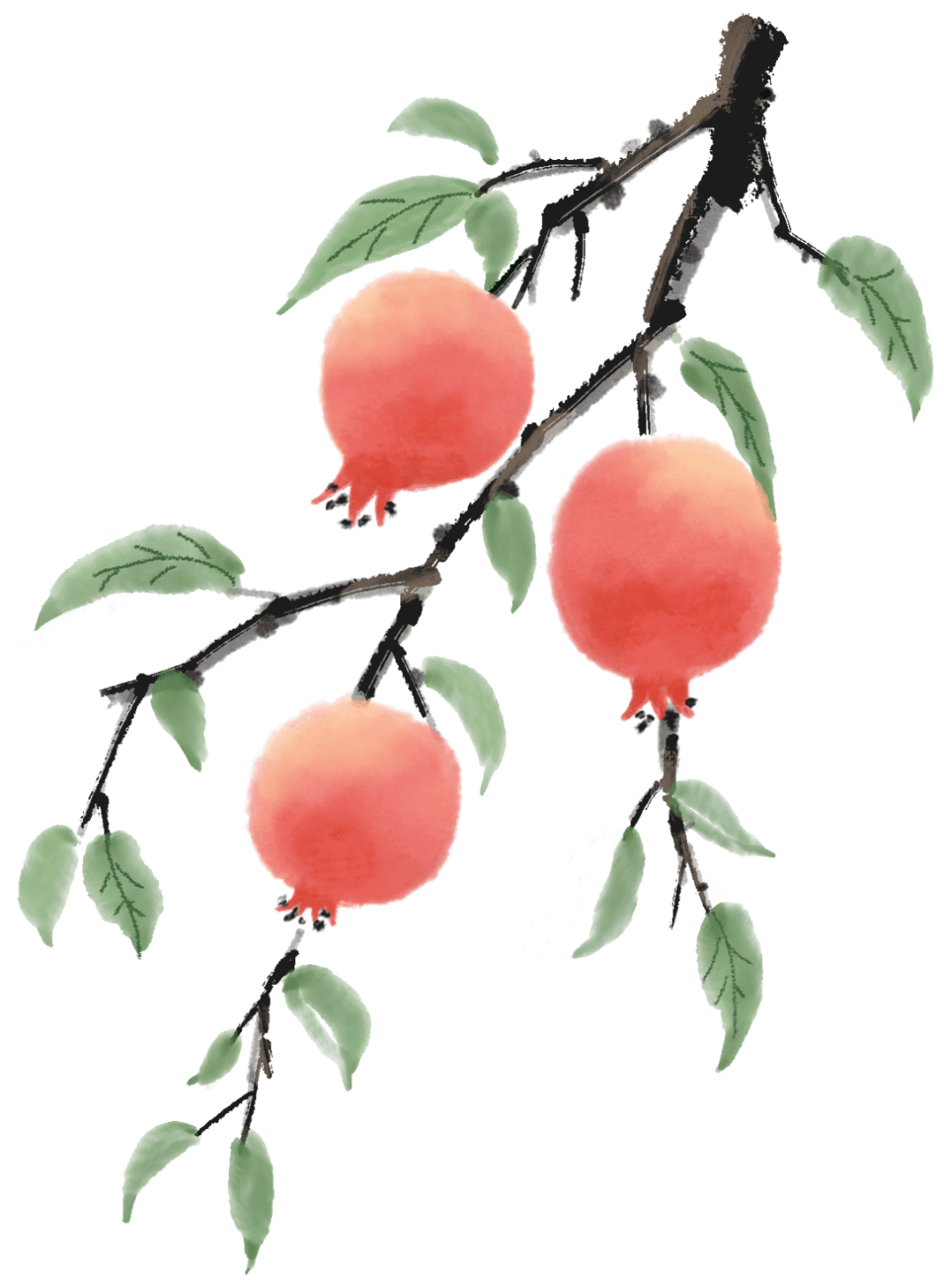Recently strolling through the fruit shop,
discovered fruits like apples and pears,
have all come online.
Now I truly feel
that early autumn has arrived.
When it comes to eating fruits,
and welcoming early autumn with open arms,
how should we choose
to be able to enjoy the delicious fruits
and also take care of our health?
One
What fruits should be eaten in early autumn?
01
Pear
Pears can moisten the lungs and stop coughing. In traditional Chinese medicine, pears enter the heart and lung meridians, and have the effects of moistening the lungs, stopping coughs, and clearing phlegm and reducing heat.
Modern nutritionists believe that pears are rich in vitamin A, vitamin C, vitamin E, potassium, calcium, magnesium, and other nutrients, as well as rich in dietary fiber, making them a good “cleaner” for the stomach and intestines.
Moreover, there are many varieties of pears available to satisfy the dietary requirements of different preferences.
02
Apple
Apples are rich in protein, dietary fiber, vitamin A, vitamin C, vitamin E, carotene, and other nutrients, which help regulate intestinal function.
Apples also contain anthocyanins, polyphenols, flavonoids, and other antioxidants, which help protect cardiovascular health.
03
Grape
Grapes have the functions of nourishing qi and blood, benefiting the liver and kidneys, and invigorating the spleen and stomach.
Grapes contain resveratrol, anthocyanins, flavonoids, and other antioxidants, which also help protect blood vessels.
04
Blueberry
Blueberries are hailed as the “king of berries” and contain rich pectin, flavonoids, and other substances.
The anthocyanins in blueberries can promote the regeneration of visual purple in retinal cells, protect eyesight, anti-aging, and enhance immunity.
05
Fig
Figs are rich in dietary fiber, vitamins, and amino acids, which helps in lubricating the intestines and promoting bowel movements.
For individuals with damp-heat constitution, moderate consumption of figs can help eliminate internal dampness and improve digestive system function.
06
Pomegranate
Pomegranates have a warm nature, sweet taste, and sourness, with the effects of producing saliva to quench thirst, nourishing stomach yin, and astringing to stop diarrhea.
Red pomegranates are rich in minerals and contain two major antioxidants – red pomegranate polyphenols and anthocyanins, which can act to beautify the skin.
The Yellow Emperor’s Inner Canon states,
“Autumn injures the body with dampness, leading to coughing in winter.”
If post-Liqiu is not handled properly to dispel dampness,
resulting in injury to the spleen by dampness,
it may lead to symptoms such as indigestion, nausea and vomiting,
abdominal pain and diarrhea, weakness, and fatigue.
This may also sow the seeds of diseases like coughing and asthma.
Therefore, we remind you,
when eating fruits this season,
we should also pay attention to preventing dampness invasion.
Two
These 4 types of fruits generate dampness, so consume them sparingly!
01
Mango
Mango is commonly known as a fruit that generates damp-heat within the body and excessive consumption can lead to heatiness.
Due to its high sugar content, overeating can hinder the body from processing internal dampness quickly, causing the body to struggle to expel moisture. For many individuals with damp constitutions, it is advisable to consume mangoes in moderation or avoid them.
Icy Watermelon
02
During the Dog Days of summer, consuming watermelon in moderation can cool and relieve heat, but watermelon’s nature is cold, making it prone to generating dampness.
Especially chilled watermelon, while providing a temporary pleasure, can bring coldness, affecting the spleen and stomach functions. The more you consume, the heavier the dampness becomes.
03
Durian
Known as the “King of Fruits” and “King of Yang Qi,” durians, when consumed in appropriate amounts, can tonify yang, dispel cold, warm the spleen and stomach; however, excessive consumption can generate dampness, heat, and phlegm.
This issue stems from the “sweet taste” of durian flesh. In traditional Chinese medicine theory, moderate sweetness can invigorate the spleen and produce fluids, but excessive sweetness can be cloying to the spleen and stomach, disrupting their functions and leading to the onset of dampness.
Plum
04
Plums are commonly seen fruits in summer, with a delightful sweet and sour taste loved by many; however, plums have a sour and cold nature, and overconsumption can generate dampness and exacerbate dampness accumulation.
Excessive consumption of plums may lead to spleen and stomach weakness, internal damp-heat, resulting in symptoms like indigestion and diarrhea. Individuals with weak spleen and stomach, especially post-Liqiu, should control their intake of plums to prevent worsening dampness.
Source: Shaanxi Common Health
Reviewer: Zhai Lina
Scan to follow Mei County CDC
Acquire health knowledge
Maintain a healthy lifestyle
Be your own primary healthcare provider


